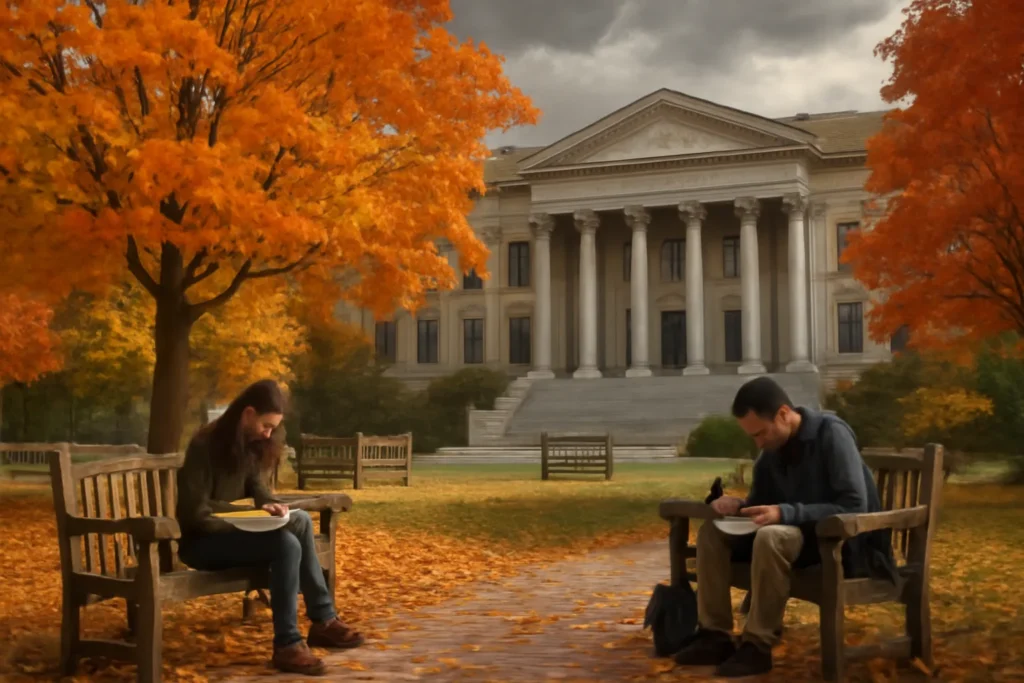Tensions at Columbia: Protest, Policy, and Political Posturing
Few moments capture the charged intersection of student activism and federal authority like the recent scene at Columbia University’s Butler Library. On a brisk spring afternoon, banners unfurled and voices rose, weaving together the raw urgency of the Columbia University Apartheid Divest (CUAD) movement and a national debate over the boundaries of dissent. Around 3 p.m., a group of approximately 75 pro-Palestinian protesters—students and supporters—occupied the historic library. By nightfall, New York Police Department officers, acting on the university’s request, had swept through, making dozens of arrests after hours of escalating confrontation.
The response from Washington was swift and unmistakably political. Secretary of State Marco Rubio, standing squarely behind the Trump administration, declared that the visa statuses of arrested protesters—some potentially international students—would undergo immediate review, with the threat of revocation. The message sent: activism would be met not just with campus discipline, but with federal immigration consequences. Rubio’s words (“Pro-Hamas thugs are no longer welcome in our great nation”) thundered across conservative media and stoked fierce debate far beyond Manhattan.
Beyond that, incidents during the protest, including injuries to two Public Safety officers and reports of threatening graffiti, are being used by the administration to justify their aggressive stance. What’s at stake here isn’t just student conduct—it is the very definition of free speech, civil protest, and how a pluralistic democracy navigates passionate disagreement.
Policing Protest: Immigration Law as a Weapon?
A closer look reveals that the use of immigration enforcement in response to campus protest is neither spontaneous nor idiosyncratic. It echoes a darker legacy in American history, from the Red Scare-era Palmer Raids to the McCarthyist crackdowns on perceived subversion, using the machinery of state to intimidate and chill political dissent. In the current moment, the Trump administration’s executive order targeting campus antisemitism has frequently been cited as justification for aggressive intervention.
But does labeling a protest “support for terrorism” or “hate speech,” as Rubio and allies did, justify sweeping threats to deport international students—many of whom, according to Columbia’s own statistics, contribute to groundbreaking research and bolster campus diversity? The answer, at least to many civil liberties experts and historians, is a clear and resounding no. Harvard Law professor Sarah Seo warns, “Violations of campus regulations should not become grounds for life-altering consequences like deportation. The rhetoric here risks conflating genuine security concerns with a broad-strokes attack on dissent.”
The facts on the ground underscore the complexity. Protesters, seeking a symbolic statement against Columbia’s financial ties to Israel, demanded divestment and voiced chants seen as controversial in the current climate. The vast majority were unarmed, facing off with public safety officers who cited the need to maintain order during critical exam periods. Local press reported some carving of inflammatory slogans—”Columbia will burn”—into library fixtures. Detestable as that act was, the university’s own code of conduct includes a range of intermediate disciplinary responses before criminal or immigration action.
“The use of federal immigration threats to stifle campus activism is a blunt force approach—it risks turning universities into zones of surveillance and silence, where students are afraid to speak truth to power.”
Columbia’s acting president, under national scrutiny, condemned both antisemitic rhetoric and the use of violence in no uncertain terms. Still, she urged for the preservation of open debate, warning that crackdowns based on political pressure risk “undermining the very educational mission of the university.”
A Dangerous Precedent: Immigration, Free Speech, and the Future of Protest
What happens when the government treats student activism as a national security threat? The answer may be unfolding before our eyes. This is not a hypothetical—this is a test case with implications for academic freedom across the country. According to a recent Pew Research study, nearly 40% of international students at U.S. universities have expressed concerns about speaking openly on political topics since 2017, fearing reprisals or immigration consequences.
The chilling effect is palpable. Faced with the threat of expulsion and deportation, do students from abroad—often among the most vulnerable members of campus communities—still feel empowered to join in calls for social justice? Or does punitive immigration scrutiny turn campuses into less vibrant and open forums for dialogue? You don’t have to agree with the slogans chanted or the tactics used to recognize the bigger issue at play: when the right to dissent is constrained by political intimidation, democracy itself is at risk.
History is replete with examples of dissenters being demonized under the pretext of public safety. From John Lewis and the Freedom Riders to Vietnam War activists, acts once branded as subversive later proved to be essential calls to conscience. Can we afford to let a new generation be muzzle by threats of deportation for speaking out on urgent international issues?
Harvard immigration policy analyst Wenli Zhou notes, “International students bring critical perspectives to our universities. Punishing them with visa revocation for nonviolent protest risks squandering America’s global intellectual leadership and betraying our constitutional values.”
Some politicians see this policy as “strong leadership.” In reality, it is a blunt, dangerous instrument, one that cuts at the very core of what universities stand for: the cultivation of ideas, engagement with controversy, and preparation for democratic participation. To build truly safe and equitable campuses, we must reject the use of immigration policy as a cudgel against dissent, and instead reaffirm the importance of safeguarding free speech—even when it is disruptive, uncomfortable, or unpopular.

